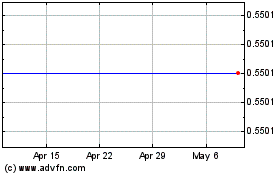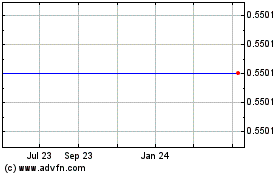UNITED
STATES
SECURITIES AND EXCHANGE COMMISSION
Washington, D.C. 20549
FORM SD
Specialized Disclosure Report
ALLIED
HEALTHCARE PRODUCTS, INC.
(Exact name of registrant as specified in its charter)
|
Delaware |
0-19266 |
25-1370721 |
(State or Other Jurisdiction
of Incorporation) |
(Commission
File Number) |
(IRS Employer
Identification No.) |
1720 Sublette Avenue, St. Louis, Missouri
(Address of principal executive offices) |
63110
(Zip Code) |
Daniel C. Dunn 314-771-2400
(Name and telephone number, including area
code, of the person to contact in connection with this report.)
Check the appropriate box to indicate the
rule pursuant to which this form is being filed, and provide the period to which the information in this form applies:
x Rule
13p-1 under the Securities Exchange Act (17 CFR 240.13p-1) for the reporting period from January 1 to December 31, 2014.
Section 1 – Conflict Minerals Disclosure
Item 1.01 Conflict Minerals Disclosure and Report
This Form SD is filed by Allied Healthcare Products, Inc., a
Delaware corporation (“Allied”, the “Company”, “we”, or “us”) for the year ended
December 31, 2014 to comply with Rule 13p-1 under the Securities Exchange Act of 1934 (“Rule”). Certain terms in this
Form SD are defined in the Rule and our Conflict Minerals Report, filed herewith as Exhibit 1.02, and the reader is referred to
those sources for such definitions.
RCOI for 2014 Calendar Year
We have determined that conflict minerals exist in at least
one component of at least one product in each of our core businesses. These components contain conflict minerals that are necessary
to the functionality or production of these products that we manufacture or contract to manufacture. Therefore, in accordance with
the Rule and Form SD, we initiated a reasonable country of origin inquiry (“RCOI”) with our direct suppliers to determine
whether any conflict minerals originated in the Covered Countries (as defined below) and/or may have been from recycled or scrap
sources.
Our RCOI process employed a number of measures to determine
whether the necessary conflict minerals in our products originated in the Covered Countries and/or may have been from recycled
or scrap sources, including the following:
| - | Consultation with the Company’s engineering staff to help determine which components do not contain conflict minerals; |
| - | Creation of a comprehensive supplier list; |
| - | | Communication and engagement with our suppliers; |
| - | Distribution to our suppliers of a questionnaire based the Electronic Industry Citizenship Coalition (“EICC”) and
The Global e-Sustainability Initiative (“GeSI”) Conflict Minerals Reporting Template (“EICC/GeSI Form”); |
| - | Collection of responses to our questionnaire from our suppliers, some of which are provided on the EICC/GeSI Form and some
of which are provided on our form; |
| - | Review of collected responses to identify supplier risk level, as described further in our Conflict Minerals Report, determine
country of origin and/or sourcing from recycled or scrap sources and determine if due diligence is required; and |
| - | Follow-up communication with suppliers to update forms if their responses did not meet our review requirements and to understand
and mitigate risks related to conflict minerals in their supply chains. |
There is significant overlap between our RCOI efforts and our
due diligence measures performed. Our due diligence measures are discussed further in the Conflict Minerals Report filed as Exhibit
1.02 hereto.
A majority of the surveys returned to the
Company indicated that our necessary conflict minerals originated outside the Democratic Republic of the Congo or an adjoining
country (collectively, the “Covered Countries”) or were from recycled material or scrap sources. The remainder of vendors
responding to surveys indicated that the source of necessary conflict minerals was uncertain or unknown. No vendors indicated that
necessary conflict minerals originated in a Covered Country.
Conflict Minerals Disclosure
The Conflict Minerals Report for the calendar year ended December
31, 2014 filed herewith as Exhibit 1.01 is available at http://www.alliedhpi.com.
Item 1.02 Exhibit
The Conflict Minerals Report required by Item 1.01 is filed
as Exhibit 1.01 to this Form SD.
Section 2 – Exhibits
Item 2.01 Exhibits
Exhibit 1.01 – Conflict Minerals Report as required by
Items 1.01 and 1.02 of this Form.
SIGNATURES
Pursuant to the requirements of the Securities
Exchange Act of 1934, the registrant has duly caused this report to be signed on its behalf by duly authorized undersigned.
| |
ALLIED HEALTHCARE PRODUCTS, INC. |
| |
|
|
| Date: May 29, 2015 |
By: |
/s/ Daniel C. Dunn |
| |
|
Daniel C. Dunn |
| |
|
Chief Financial Officer |
Exhibit 1.01
Conflict Minerals Report
This Conflict Minerals Report (“Report”)
of Allied Healthcare Products, Inc., a Delaware corporation (“Allied”, the “Company”, “we”,
or “us”) for the year ended December 31, 2014 is presented to comply with Rule 13p-1 under the Securities Exchange
Act of 1934 (“Rule”). Certain terms in this Report are defined in the Rule and our Specialized Disclosure Report on
Form SD and the reader is referred to those sources for such definitions.
Product Overview
We manufacture a variety of respiratory
products used in the health care industry in a wide range of hospital and alternate site settings, including sub-acute care facilities,
home health care and emergency medical care. The Company’s product lines include respiratory care products, medical gas equipment
and emergency medical products.
Our product lines include:
Respiratory
Care Products
| · | respiratory care/anesthesia products |
| · | home respiratory care products |
Medical Gas Equipment
| · | medical gas system construction products |
| · | medical gas system regulation devices |
| · | disposable oxygen and specialty gas cylinders |
| · | portable suction equipment |
Emergency Medical Products
| · | respiratory/resuscitation products |
| · | trauma and patient handling products |
The Company internally reviews the composition
of all components supplied to the Company and, based on its knowledge of these components, determines which components do not contain
conflict minerals. Based on this review, the Company determined that less than 1.5% of the components it purchased during the reporting
year contained conflict minerals.
Report Overview
The Company has concluded that during 2014
(i) it manufactured products as to which “conflict minerals” (as defined in Section 1, Item 1.01 (d)(3) of Form SD)
are necessary to the functionality or production of such products and (ii) based on a reasonable country of origin inquiry (“RCOI”)
the Company has not been able to determine the origin of its necessary conflict minerals. Pursuant to SEC staff guidance, no company,
including Allied, is required to describe its products as “DRC conflict free,” having “not been found to be ‘DRC
conflict free,’” or “DRC conflict undeterminable.”
Due Diligence Process and Results
The Company performed due diligence on
the source and chain of custody of the conflict minerals that are necessary to the functionality or production of its products.
The due diligence measures conformed to the OECD Due Diligence Guidance for Responsible Supply Chains of Minerals from Conflict-Affected
and High-Risk Areas (Second Edition), an internationally recognized due diligence framework.
The Company has employed a combination
of measures to exercise such due diligence. For example, the Company adopted a formal Conflict Minerals Policy which can be found
on the Company’s website at www.alliedhpi.com. In addition, the Vice-President of Operations and Quality Department
has implemented and maintains the supply chain due diligence process. This Department is competent to oversee the supply chain
due diligence process because of their previous experience with the maintenance of the quality system for FDA compliance and its
familiarity with the Company’s production processes. The Vice-President of Operations and Quality Department reports to our
Chief Executive Officer.
The Company’s primary means of due
diligence was through a supply-chain survey with direct suppliers using a questionnaire based on the EICC/GeSI Conflict Minerals
Reporting Template. The Company submitted such a survey to all of its vendors who supply the Company with components which, based
on the Company’s internal review, likely contain conflict minerals. In this reporting year, we received responses from 100%
of the 160 vendors to whom we submitted such surveys.
A majority of the surveys returned to the
Company were on a supplier wide basis and did not inform the Company whether particular products supplied to the Company contain
conflict minerals. A majority of survey responses indicated that our necessary conflict minerals originated outside the Democratic
Republic of the Congo or an adjoining country (collectively, the “Covered Countries”) or were from recycled material
or scrap sources. The remainder of vendors responding to surveys indicated that the source of necessary conflict minerals was uncertain
or unknown. No vendors indicated that necessary conflict minerals originated in a Covered Country.
While no supplier has indicated that any
necessary conflict minerals originated in any of the Covered Countries, the limited information provided by the suppliers in response
to the survey in most cases did not identify the facilities used to process or the country of origin of the necessary conflict
minerals in its products. The Company’s efforts to determine the mine or location of origin of the necessary conflict minerals
included submitting the survey described above and additional follow-up contacts with several suppliers.
As a downstream purchaser of inputs, the
Company’s due diligence measures can provide only reasonable, not absolute, assurance regarding the source and chain of custody
of the necessary conflict minerals. We generally do not have direct relationships with smelters and refiners with respect to conflict
minerals and do not perform or direct audits of these entities within our supply chain. The Company’s due diligence processes
are based on the necessity of seeking data from our direct suppliers and those suppliers seeking similar information within their
supply chains to identify the original sources of the necessary conflict minerals.
Risk Management
The Company has implemented several procedures
to manage the risk that our necessary conflict minerals might originate from Covered Countries. For example, the Company’s
standard vendor agreement requires vendors to notify the Company if any products supplied to the Company contain conflict minerals
and to notify the Company of the country of origin of any such conflict minerals. As smelters are identified, the Company will
engage those smelters where possible (or rely on independent industry certifications) to determine if they are “conflict
free.” The Company has also added standards relating to the sourcing of Conflict Minerals to its vendor qualification process
and procedures. The status of those vendor qualifications are a consideration in purchasing decisions.
Pursuant to Section 1, Item 1.01 (c)(1)(iv)
of Form SD, the Company is not required to obtain an independent private sector audit of this Conflict Minerals Report.
Allied Healthcare Products (NASDAQ:AHPI)
Historical Stock Chart
From Sep 2024 to Oct 2024

Allied Healthcare Products (NASDAQ:AHPI)
Historical Stock Chart
From Oct 2023 to Oct 2024
